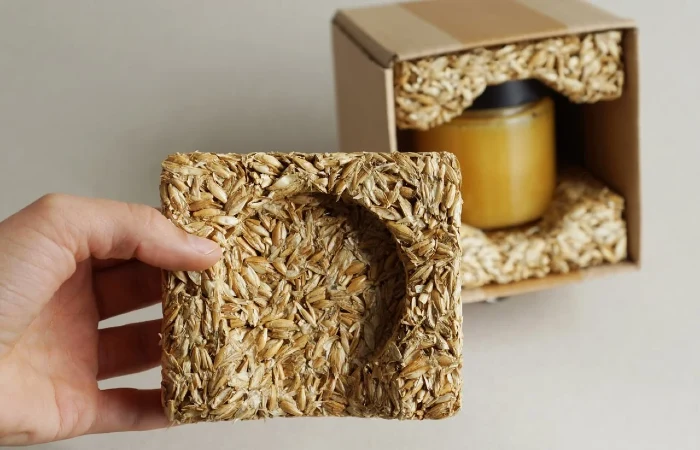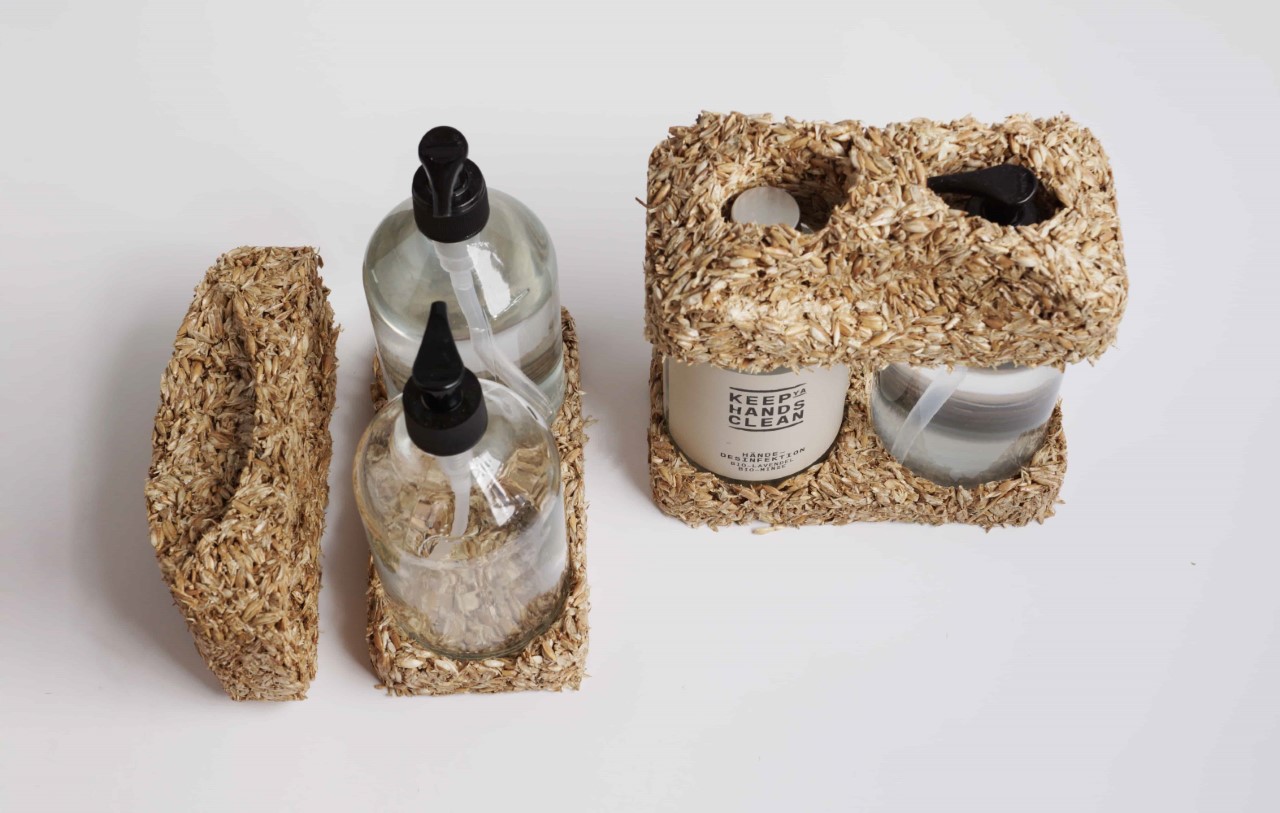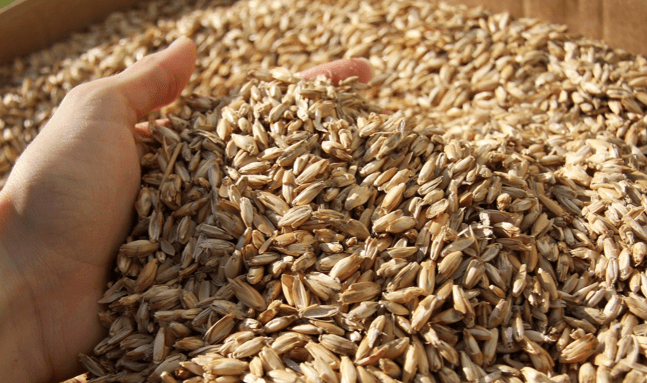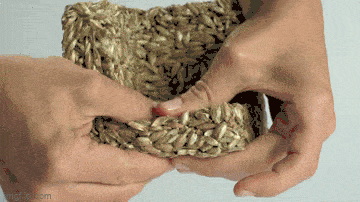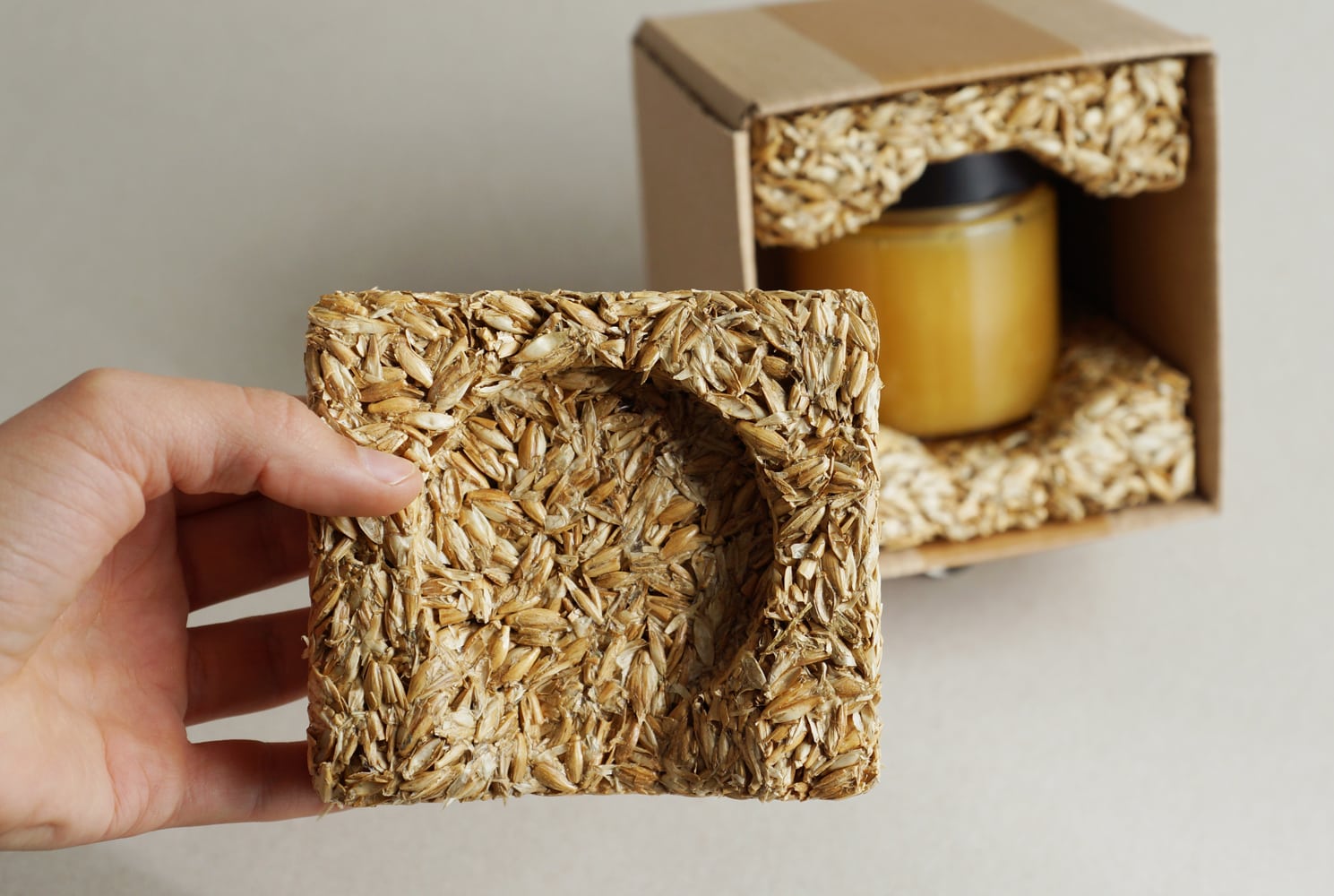Upcycled Grain Husk as a Sustainable Alternative to Styrofoam
In the relentless battle against plastic pollution, one German company is spearheading a surprising (but innovative) approach to packaging.
Introducing upcycled grain husk – a sustainable alternative to the ubiquitous and environmentally taxing styrofoam.
Each day, millions of products travel from factories to consumers swathed in various forms of packaging – not to mention the massive waste from product returns in the US alone. The aftermath? A staggering accumulation of waste.
Particularly problematic is the recycling of molded styrofoam, designed specifically for individual products, rendering reuse nearly impossible. Traditional styrofoam, a blend of plastic and air, poses a formidable recycling challenge, if not an outright impossibility.
Proservation’s Innovative Answer: Recou
Proservation, a German innovator, introduces Recou – a packaging material ingeniously crafted from grain husk.
In the agricultural process, grain husks are typically discarded, burned, or relegated to animal bedding.
Proservation, however, sees them as a resource, transforming them into a soft, yet resilient material that rivals styrofoam in functionality and surpasses it in environmental friendliness. Using a unique eco-friendly binder, grain husks are repurposed into a biodegradable, moldable packaging solution.

“Thanks to our specially developed ecological binder, RECOU can be shaped as desired, and due to comparable material properties, it has the potential to substitute petrochemical packaging solutions such as EPS (Styrofoam) and represent an ecologically sound alternative for many applications,” Proservation asserts.
How It Works
Those natural jackets of cereal grains, grain husks, are usually cast aside during initial processing, piling up in heaps at hulling mills. Recou can use the innate hollow spaces of these husks, to cushion and insulate your next package. They’re turning agricultural leftovers into your product’s protective guardian.
Crafted only from grain husks, RECOU is a marvel of sustainability: fully biogenic and biodegradable. Its production is straightforward and energy-efficient, and it’s 100% compostable. The magic lies in the eco-friendly binder, allowing it to mold to any shape, matching—and even replacing—traditional petrochemical options like Styrofoam.
RECOU’s grain husk material doesn’t just talk the eco-friendly talk; it visibly obvious. Its natural, earthy appearance—evocative of grains, straw, farms, and the essence of nature—lets B2B customers effortlessly showcase their commitment to sustainability. This down-to-earth look not only communicates legit green values, but also intuitively guides end consumers toward proper disposal: straight into the organic waste bin or compost pile.

The Technical Details: A Closer Look at Recou
Recou’s manufacturing process, spanning 6–8 hours per unit, results in a product density of 120 to 150 kg/m³. While this is more substantial than styrofoam’s lighter weight, Recou compensates with its moisture resistance and absence of mold under certain conditions.
“However, if the material is permanently exposed to high humidity or moisture, the decomposition processes start and mold may occur,” Proservation notes, highlighting both the strength and natural limitations of their product.
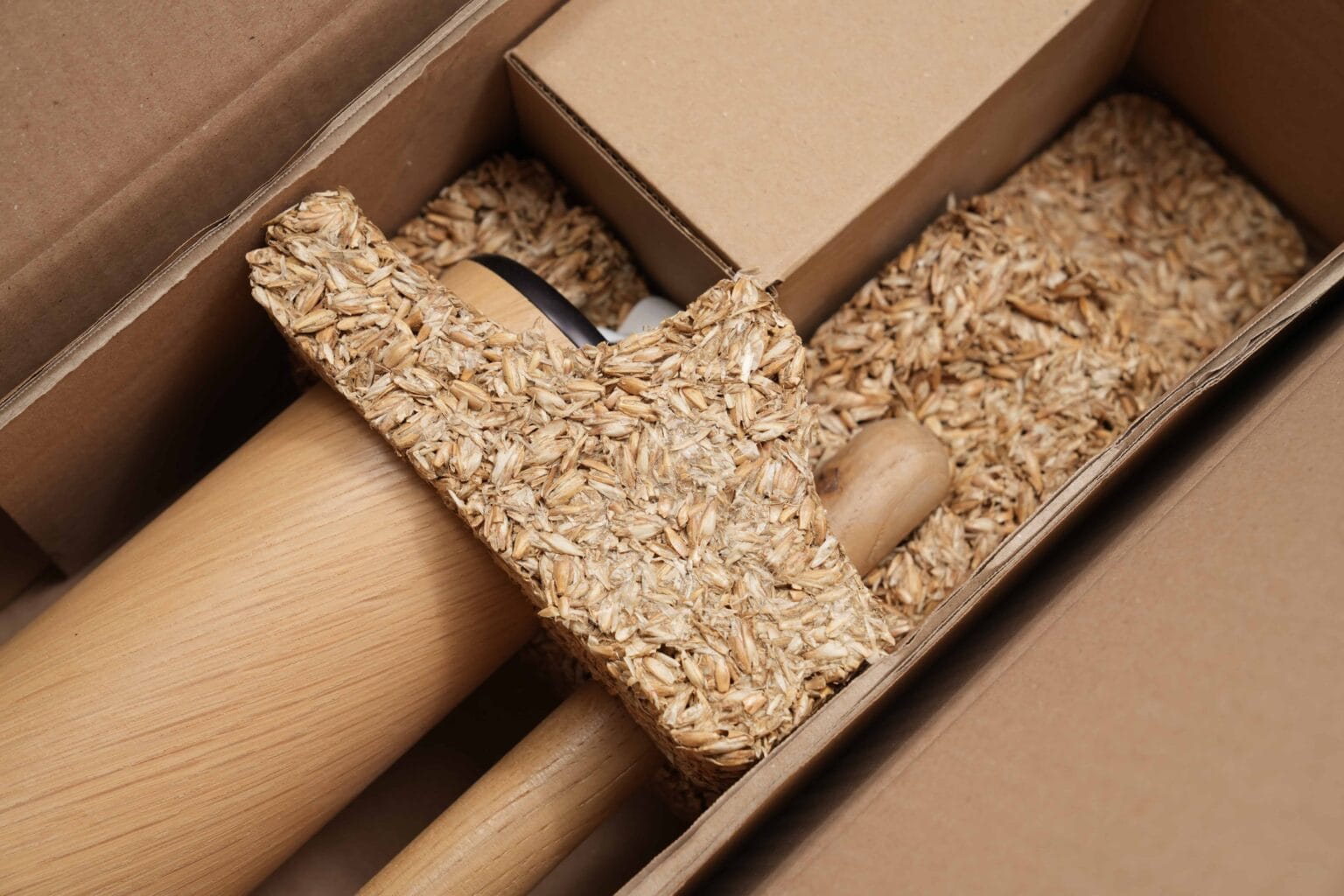
Proservation’s Vision and Market Adaptation
Envisioning a significant reduction in styrofoam use, Proservation isn’t just ideating but actualizing this change. They offer standard products like corner-cushions for pallets and cater to custom requirements.
By 2024, the company aims to enhance its production capacity with an industrial plant, marking a major step towards a sustainable, no-waste future.

The Need for Sustainable Packaging
The United States, with its immense consumption and waste generation, stands at a crucial juncture in environmental responsibility.
In 2021, America produced over 80 million tons of container and packaging waste, a significant portion of which was plastic-based, like styrofoam. Adopting alternatives like Recou could drastically alter this landscape.
More To Discover
- Sustainable Air Purifier Outperforms House Plants by 70X with Mini-Forest Technology
- Bottled Water Industry Responds to Columbia University Study on Nanoplastics & They’re Not Wrong
- 9 Trailblazers of Mycelium-Based Meats: 8 Young Fungi Brands You Can Eat Right Now And Their Godfather
- PLANETCARE 2.0: An Eco-Conscious Step Towards Cleaner Oceans and Sustainable Laundry Practices
While Recou presents a promising solution, its broader adoption faces challenges, including production scalability, cost-effectiveness, and meeting diverse industry requirements. The U.S. market, with its stringent environmental regulations and growing eco-conscious consumer base, could significantly benefit from and contribute to the evolution of such sustainable packaging solutions.
Interested in eco-friendly, sustainable product design? We are too! We’ll be featuring green product designs more often.







